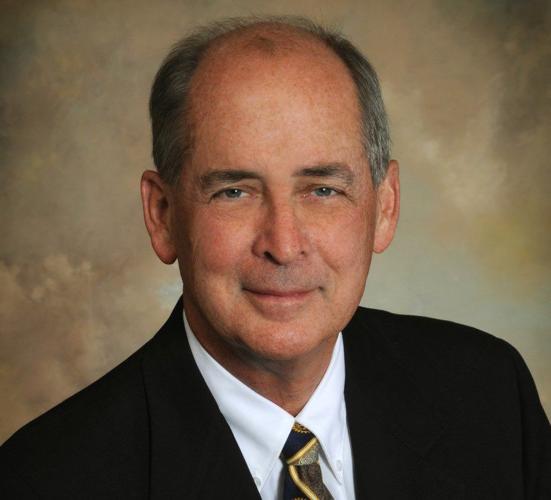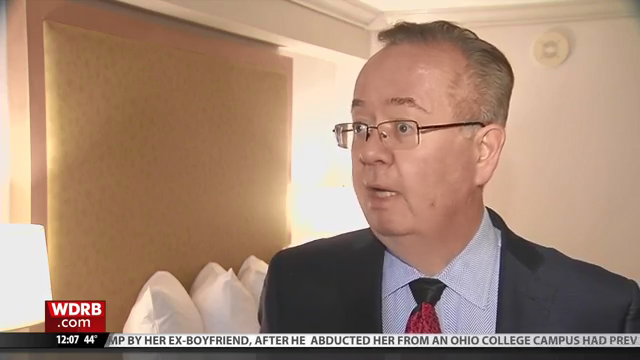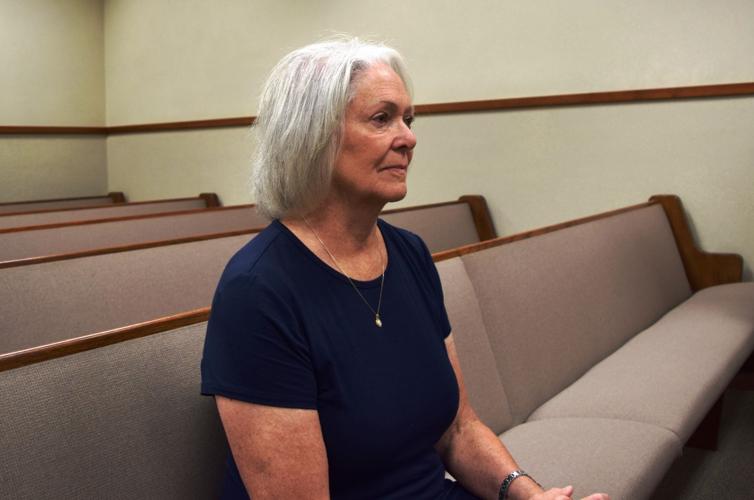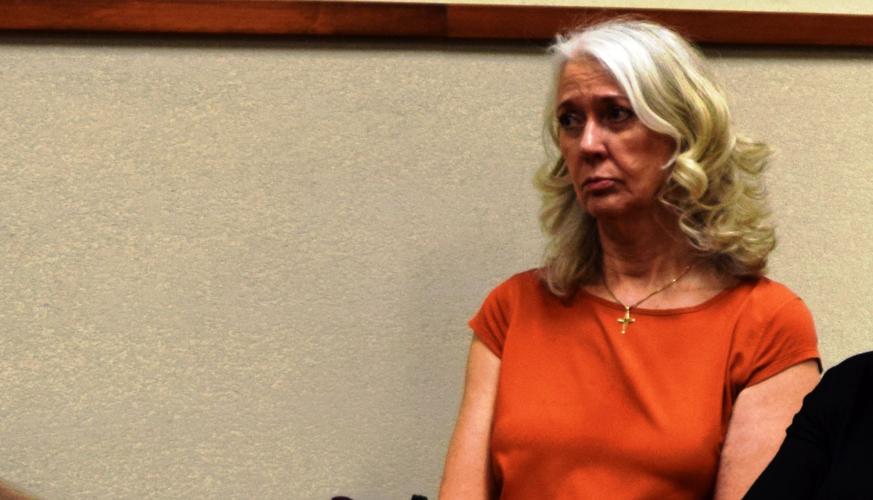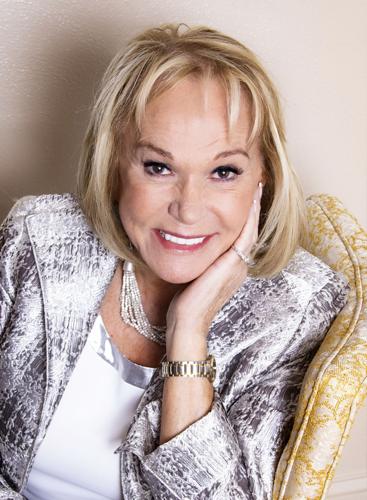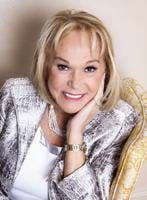LOUISVILLE, Ky. (WDRB) – Before they accused each other of robbing their inheritance, before all the lawyers, depositions and millions in legal fees – life was different for the four living daughters of the late Al J. Schneider, one of Louisville's great developers.
In fact, for decades Schneider's three youngest children – Mary Moseley, Christe Coe and Dawn Hitron – lived next door to each other and raised their families in homes their father, a man who was born to build things, constructed for them in a subdivision behind the Louisville Zoo.
Their kids, long since grown, used to play in the large, flood-prone backyards and swim in the south fork of Beargrass Creek.
"It was wonderful; it was fun. At some point the kids didn't even know whose mother belonged to them because they were back and forth from house to house," Moseley, 70, said in an interview last month. "That was just a really good time."
Some question whether the Schneider daughters were ever as close as the proximity of their homes would suggest. But today, it's clear that they are hopelessly divided.
"We weren't a family anymore," Moseley said in a July 2018 deposition.
The fight erupted in 2016 over an ill-fated plan to sell the Galt House, their father's most significant project and the crown jewel of the Al J. Schneider Co. The riverfront hotel, with its east and west towers, is the largest in Louisville with 1,300 rooms.
The $135 million sale long ago fizzled, and now the fight centers on who owes money to whom and just how the sisters can reach a business divorce. After multiple failed attempts at a resolution, the Schneider sisters may have to let a jury settle their differences. A two-week trial in Jefferson Circuit Court is set to begin in December.
The first judge who handled the case tried for months to broker an agreement, but she gave up in 2017, saying the "feelings run too deep."
Moseley, who ran the Schneider Co. for 15 years after her father's 2001 death, and her youngest sister Hitron favored selling the hotel, but they couldn't overcome the opposition of the majority of the other 18 children and grandchildren of Schneider.
The other faction, headed by sisters Christe Coe and Nancy O'Hearn, took control of the company in June 2016 and immediately fired Moseley. After the change in management, Hitron said she quit her longtime administrative job at the company after being relegated to the basement.
The sisters – Moseley and Hitron on one side, Coe and O'Hearn on the other – remain mired in litigation, each side accusing the other of breaching fiduciary duties.
The case also involves Todd and David Oetken, sons of Al J. Schneider's oldest child, the late Joy Oetken. They are aligned with Coe and O'Hearn.
Now with little power over the company, Moseley and Hitron are looking to be bought out of their roughly one-third share. The Schneider Co. – last formally valued at $226 million in 2015 – has been resisting their demand, as buying out Moseley and Hitron could create a cash crunch, perhaps forcing a sale of the company.
Now chaired by David Oetken, one of Schneider's grandchildren, the company says it has uncovered evidence that Moseley – long distrusted by a number of her sisters, nieces and nephews -- improperly funneled millions of dollars to her husband and son while she was in charge, under the noses of the broader family.
"My clients were frankly outraged to discover that this was going on," Mark Grundy, a lawyer for Christe Coe and her husband, Randy, said in court last month.
A judge ruled this month that the company can pursue those claims, dragging Moseley's husband and son into the court battle. The Moseleys deny that they did anything wrong, with their lawyers calling it a "desperate" attempt to gain leverage in the litigation.
The acrimonious fight has echoes of the Binghams, the Louisville family that sold its media empire, including The Courier-Journal, in 1986 after a power struggle among the third generation of would-be owners.
In addition to interviews with family members and lawyers, this story is based on hundreds of pages of court records, including more than a dozen sworn depositions taken in the last three years.
Moseley, 70, and Hitron, 65, sat for an off-camera interview with WDRB in August. Coe, 68, and O'Hearn, 73, declined to be interviewed.
In addition to Schneider's four living daughters, some Louisville power players have emerged as peripheral figures in the feud, namely Mike Mountjoy, co-chairman of Louisville City FC soccer club; Christe Coe's husband Randy, the former longtime president of Kosair Charities; and University of Louisville athletics director Vince Tyra.
Even as the Schneider fight drags on, family members on both sides have called it "sad" and a "waste of time and money."
Christe Coe, a daughter of Al J. Schneider, during a 2017 court hearing in Louisville.
Christe Coe said in a 2016 deposition that she never wanted to sue her sisters, but felt backed into a corner.
She said she knew her late parents -- Al J. Schneider's wife, Thelma, died in 1995 – would have wanted their children to stick together.
Asked what her parents would have thought of the complaint that started the court battle in early 2016, Coe said: "Oh, they would have hated it."
A self-made 'pioneer' of Louisville's riverfront

Al J. Schneider, the riverfront development pioneer, built the Galt House hotel towers in the 1970s and 1980s. He is memorialized in a statue at the base of the hotel on Fourth Street.
Al J. Schneider, the grandson of German immigrants, was an "outspoken, big-dreaming builder who pioneered the transformation of Louisville's riverfront," according to a story published in The Courier-Journal four years after his death.
A child of the Great Depression, Schneider grew up in Shively, dropped out of high school in the 1930s to work and eventually established his own construction business, Home Supply Co.
He grew the business from a home-office in Shively. He and Thelma's second child, Al J. Schneider Jr., got his "Kayo" nickname because, like a 1930s cartoon character, he slept as a baby in a dresser drawer in his parent's bedroom. Their firstborn, Joy, got the baby bed and there was no room for another one, according to Kayo's 2005 obituary.
Schneider's company would take on an ever-growing slate of commercial developments, culminating in the original Galt House in 1972. Schneider would add the second Galt House building, known as the east tower, across Fourth Street in 1985.
At that time, Louisville's downtown waterfront was a neglected industrial junkyard. Investments like Waterfront Park and the KFC Yum! Center were decades in the future.
Schneider's decision was widely recognized to be a big financial risk.
O'Hearn, Schneider's oldest living child, said in a deposition that her father "spent all his money" to build the downtown hotel – "no bank loans, no help from the state, no help from the city."
"He always said, 'This is my legacy to the city and to my family,'" O'Hearn said.
Schneider also built what is now called the Crown Plaza hotel near Louisville Muhammad Ali International Airport and the Waterfront and Riverfront Plaza office towers next to the Galt House.
Those buildings are still the company's main assets today, though the company has branched out in recent years by acquiring the Embassy Suites downtown hotel and a stake in the Kentucky Kingdom amusement park.
The company now generates about $100 million a year in revenue and employs about 1,000 people.
The succession: 'Not a good way to be anointed'

Mary Moseley, a daughter of Al J. Schneider, was CEO of the Al J. Schneider Co. for 15 years following her father's death in 2001. She is photographed in Jefferson Circuit Court during an August 2019 court hearing.
Even as he accumulated wealth, Schneider was averse to carrying debt and notoriously frugal.
A business associate of Schneider's wrote in a eulogy that Schneider carried around a plaid suitcase that was held together with a belt because the latch was broken.
On Sundays, Schneider's daughters would often gather at their parents' home on Newburg Road for coffee – sometimes warmed-over coffee that their father had saved from the previous day, Moseley said.
It was during one of these Sunday gatherings, about 18 months before Schneider died at 86 on May 27, 2001, that the gruff developer told his five daughters that Moseley, his fourth-born, would succeed him, Moseley told WDRB in August.
"He said he had been thinking a lot, and he was not going to live forever -- and that was the first time he admitted that," Moseley said. "And (he said) Mary is going to take the lead. That was the first time I heard of that."
Moseley said her father then asked if anyone had a problem with his decision. "And there was one person that spoke up and said, 'I do.' And he said, 'Well that's too bad. That's how it's going to be,'" Moseley recalled.
Moseley wouldn't say which one of her family members objected to the decision, but she said it was "not a good way to be anointed."
Moseley's succession of her father is the key fault line in the Schneider story -- the singular event from which every other family dispute seems to stem.
"She took over the reins of the company without prior knowledge of hotelry, without business acumen, and that made me not trust her," Moseley's older sister, O'Hearn, said in an August 2018 deposition.
Randy Coe, who has for years represented his wife, Christe, on the Schneider Co. board, said in a September 2018 deposition that "there's nothing in (Moseley's) background that qualifies her" to run the company.
"And of course, as events have unfolded, it's proven that she lacked the integrity to run it," Randy Coe said in the deposition.
What's more, some family members dispute whether Moseley was actually anointed in the first place.
O'Hearn testified in her deposition that she visited her father frequently in the nursing home where he lived prior to his death, and he never said anything about Mary being his successor.
"I've never seen in writing anywhere that Daddy put her in charge," O'Hearn said in the deposition, offering an alternative theory that Schneider's "cronies" decided to elevate Moseley.
Randy Coe, in his deposition, also refused to concede that his father-in-law chose Moseley, saying "there is no evidence that he did."
Moseley's account is backed up, however, by Hitron as well as Mike Mountjoy, the company's longtime accountant and a trusted advisor of Schneider's. Orson Oliver, the longtime lawyer for the company, is quoted in meeting minutes from January 2002 saying Schneider wanted Moseley to run the company.
Like many in the Schneider clan, Moseley worked summer front-desk jobs at her grandfather's hotels in high school and college. But she had no role with the company before succeeding her father.
She graduated from the University of Louisville with an education degree and taught school for a few years. She and her husband, Sam, lived in California early in their marriage, where Moseley worked in sales for a hotel. The couple also ran a photography studio when they returned to Louisville.
Moseley's nephew Todd Oetken, who once managed the Executive Inn, a former Schneider hotel, would complain in his deposition that Moseley had "no experience whatsoever when she took over the position."
But after making his choice, Schneider directed his various business associates to groom Moseley for the job, Moseley and Hitron told WDRB.
Of course, none of Schneider's other children were obvious successors. The oldest, Joy Oetken and Kayo Schneider, were in "poor health," Hitron said. They died in 2003 and 2005, respectively.
Coe, a nurse, hadn't been involved with the company (other serving on its board) since working as a lifeguard in the 1960s, she testified. O'Hearn worked as hairdresser before becoming a stay-at-home mom to her three children. She is the owner and executive designer of Events LLC, an events company.
Hitron, the youngest of the family, had been a graphic designer before taking on a loosely defined executive role with Schneider Co. once Moseley became the president and CEO.
But Moseley and Hitron told WDRB that a handful of other family members were interested in the CEO's chair, including their sisters' husbands.
Tom O'Hearn ran the hotel business at the Galt House under Schneider and left the company with a multiyear severance agreement shortly after Moseley took over. He declined to comment.
Nancy O'Hearn is the oldest living child of Louisville developer Al J. Schneider (photo provided)
Nancy O'Hearn would volunteer in her deposition that Tom O'Hearn "had a nervous breakdown after losing his job with the hotel," which precipitated their divorce a few years later.
But Moseley said O'Hearn left the job of his own accord. "(Nancy) thinks I fired him. I didn't," she said.
Randy Coe, meanwhile, was president of Kosair Charities for 21 years and also a longtime board member of the authority that runs Jefferson Riverport, the industrial park in southwest Jefferson County. His attorney did respond to a request for comment.
Randy Coe led Kosair Charities for 21 years. He was chairman of the Al J. Schneider Co. from 2016 to 2019. He is married to Christe Coe, a dau…
In his deposition, Coe said Moseley was "not qualified by business background or education to serve in the role" of CEO and that in fact, she was "allowed the title" while other professionals actually ran the company.
Moseley and Hitron also said their nephews, Todd Oetken and David Oetken, were interested in succeeding Al J. Schneider. Todd Oetken, a financial planner at Louisville's Hilliard Lyons, and David Oetken, who works at Greater Louisville Inc., declined to speak to WDRB for this story.
Moseley told WDRB that she used to be close not only to Christe Coe's family living next door, but to all of her nieces and nephews. Things began to change when her father chose her to run the company, she said.
"Like in all families when something like that happens, there is a little bit of jealousy and resentment," she said. "And that happened to our family, and I didn't think it would. I said to them, I wanted to earn their trust, and I guess I never could."
After the fight erupted, Christe and Randy Coe moved from the house where they had lived between Hitron and Moseley for decades. Moseley and Hitron said their sister and brother-in-law gradually began avoiding chance encounters with them.
Despite the murkiness of his own succession, Schneider did put something in writing that would prove fateful many years later.
Instead of giving the company directly to his 20 children and grandchildren, he vested all the power – including the power to sell anything and everything – in a small group that included only three of his six children.
Moseley, Hitron and Coe were the only family members chosen for a five-person trust that, according to Schneider's will, would control the company for 15 years following his death. Notably, O'Hearn was left out.
The Schneider Co. had a separate board of directors that played a role, but the five-person trust had the ultimate authority, including choosing the board members.
As the 15-year clock began to run out, that's when the trouble started.
Family tensions mount
In the early years of Moseley's reign, only insiders would have picked up on any distrust or resentments among the Schneider heirs.
In 2005, the four sisters were photographed for The Courier-Journal under the headline "A new vision for the Galt House."
Moseley had embarked on a $60 million renovation of the Galt House – it still had red carpet from the 1970s – and built the airy, glass "conservatory" bar over Fourth Street, connecting the two towers.
The newspaper reported that Moseley kept her sisters apprised of company issues at weekly Tuesday morning meetings.
Those meetings would fall off in 2006, Moseley told WDRB, after the sisters decided not to continue using a family business consultant from the University of Louisville. (The company employed a handful of family business experts over the years, to no avail).
The company hummed along, renovating the old Executive West hotel and re-branding it as the Crowne Plaza, and tearing down the aging Executive Inn.
It would later take an interest in the Kentucky Kingdom amusement park and in the downtown Embassy Suites, eventually absorbing all of that hotel in a settlement with its developer.
Things were relatively calm, but not everyone was satisfied with the company's direction.
Joy Oetken's children, in particular, wanted the company to send more money to the family in the form of dividends but felt powerless to make that happen.
"The beneficiaries or shareholders were, you know, starved for cash," David Oetken, the Schneider grandchild who now chairs the company, said in a deposition. "They couldn't pay their taxes a lot of times. There was no benefit in ownership of the company."
Meanwhile, under Moseley's leadership, the company was "lacksadaisy" in managing its expenses, Oetken said.
Family tensions would build as a key date approached: May 31, 2016.
That's when control of the Schneider company was scheduled to shift to all of Schneider's heirs as a group. The five-person trust he set up to run things for 15 years would dissolve.
The Coe-O'Hearn faction of the family alleges that Moseley, Hitron and Mike Mountjoy, the accountant whom Schneider named to the trust, acted as a voting bloc on the trust, insulating themselves from the broader family and maintaining their grip on the company.
As the end of trust approached, another power struggle developed between Moseley and Scott Shoenberger, a hotel veteran who was hired in March 2014 as the company's chief operating officer, with the understanding that he would eventually succeed Moseley.
To the anti-Moseley faction of the family, Shoenberger represented the chance to finally "professionalize" the management of the company.
Scott Shoenberger, CEO of the Al J. Schneider Co.
But Shoenberger felt "minimized" in the position under Moseley, he said in a deposition, where he was held accountable for results without the proper decision-making authority.
"I felt like I was basically a mushroom, I guess is the best way to put it; so, kept in the dark and fed plenty of manure from all levels," Shoenberger said.
Shoenberger in his testimony acknowledged defying Moseley's orders not to communicate directly with her family. He traded emails behind the scenes with David Oetken and Randy Coe – both board members of the company – and solicited their help in his unsuccessful quest to get an employment contract so he could feel "settled" in Louisville for the long-term.
"Scott regularly leaks info to me and Randy, and I'm very worried that the company will not do well over the long run with Mary's continued involvement," David Oetken wrote in a January 2015 email.
In his own testimony, Oetken said "there was a lot of fear that Mary was going to fire (Shoenberger)." Moseley, with approval of the company's board, commissioned an independent research report that was critical of Shoenberger's leadership.
For her part, Moseley denied resisting attempts to be replaced by Shoenberger. She said she was always clear about her plan to retire when the trust ended in 2016, and her family members never pursued a CEO change at the board.
Tensions came to a head in 2015.
Bill Cooper, a longtime attorney for the company, recalled in his deposition a meeting in February or March of that year, in which he told Moseley that the broader family was going to clean house when they got control of the company, including firing her. Moseley's response, Cooper recalled, was, "You've just thrown a bucket of cold water on me."
As the Coe-O'Hearn side points out, it was around this time that the company got serious about selling its assets.
Moseley and Mountjoy recruited Vince Tyra, then a businessman with experience in private equity, to join the board and immediately connect them to professionals who could market the company's properties. Tyra began working on that task before attending his first board meeting, emails show.
David Oetken would complain that Tyra was brought in with an agenda to sell the company "as is."
In August 2015, the board adopted a "plan of liquidation" that envisioned selling "substantially all" of the company's properties. In October, a northern Kentucky firm called Columbia Sussex made a preliminary offer of $135 million for the Galt House, which Moseley thought was a good deal.
But the family members who didn't trust Moseley thought she ran roughshod over them with a rushed effort to sell everything rather than give up control of the company at the end of the trust in 2016.
Randy Coe called it a "self-serving rush to (a) fire sale as the trust was coming to an end."
"I have to assume that forcing a liquidation was a way to control the future. I don't think you and Mike (Mountjoy) were comfortable with the uncertainty of not having control," David Oetken wrote to Moseley in a January 2016 email. "…So if my assumption is correct, the strategy is to quickly sell as many assets as possible so that there is nothing left to manage because you and Mike have no faith in the family."
Oetken wrote that only a few days after a group of 15 Schneider children, grandchildren and spouses – including him, O'Hearn and Christe and Randy Coe – wrote a letter formally objecting to the Galt House sale.
The group then took the fight to probate court in February -- only four months before Moseley's side would lose control of the company – and the proposed sale fell apart.
Moseley's side contends that the objections to liquidating the company came belatedly and ring hollow, given that many family members had wanted to cash out of the company for years.
Indeed, the four sisters had discussed selling off the company at a meeting in November 2014.
And Nancy O'Hearn and Randy Coe voted for the 2015 liquidation plan months before they went to court to stop the Galt House sale. O'Hearn would explain that by saying she voted in favor "looking into a liquidation plan."
Yet, a few months later, she would write in an email, "I am deeply concerned the heritage will be sold before it ever comes into the family's hands."
Coe said he was open to exploring a sale but would change his mind after losing confidence that the company was going about it in the right way, to get the best price.
In any event, with sale scuttled, the family majority would finally exercise its power over the company on June 20, 2016, the first board meeting after the trust was no longer in control.
As David Oetken told Moseley in a letter four days prior, it was game-over: "I appreciate all you have done for the Company, but a majority of the shareholders, including myself, are ready for somebody else to take the reins. Please do not interfere with this process."
Randy Coe replaced Moseley as the company's chairman, and Shoenberger was elevated to CEO.
Moseley said Randy Coe gave her two hours to clear out her office.
"I had done my job. I did what my father asked me to do," she said in her 2018 deposition. "I had a profitable company. It was very sell-able."
'Egregious conduct'
Now able to comb through the company’s records, Moseley’s detractors say they have discovered how she feathered her own nest, evidence that the distrust they long harbored was warranted.
The company is suing her, her husband Sam and son Shane, saying Mary Moseley “funneled” about $5 million in excessive and unreasonable compensation to her husband and son from 2002 to 2016.
“It was egregious conduct … it was embarrassing to them, and it should be embarrassing,” Grundy, a lawyer for the Coes, said in court last month.
Moseley said her husband and son’s involvement with the company stemmed from pre-existing business relationships set up by Al J. Schneider.
The two sides disagree on whether the arrangements for Moseley’s son and husband were properly disclosed and approved by the company’s board.
In 1993, Schneider gave his son-in-law, Sam, a job in the company’s real estate leasing division despite his having no experience in real estate nor a real estate license. Schneider would later promote Sam to the head of the real estate leasing division.
Lawyers for the Coes said in a court filing in May that Sam Moseley’s pay jumped from an average of $40,587 in the 1990s to $226,817 in the 11 years he worked for the company after his wife took over.
But Mary Moseley said that’s because her husband was successful at securing leases for Waterfront Plaza and other Schneider office buildings. His pay was primarily commissioned-based.
Shane Moseley, meanwhile, became the company’s insurance agent in 2009 when he joined – and eventually bought out – the small agency that had long sold insurance to the company under Schneider.
The company and agency had a cozy relationship, but one that long predated Moseley’s son.
The agency did more than 90% of its business with the Schneider Co. and rented office space without a written lease on the same floor as the Schneider Co.’s executive offices at Waterfront Plaza, a company building.
Mary Moseley said she kept a purposeful distance from her son’s business with the company, and that Shane’s efforts saved the Schneider Co. a lot of money on premiums. But she signed invoices and contracts between the company and the agency, records show.
When the company moved to a different insurance arrangement that meant substantial savings -- but also a lower commission for the Cautrell agency -- Mary Moseley signed off on a $120,000 annual consulting contract for the agency that would help make up for the lower commission, records show. (The company still saved money overall, attorneys for the Moseleys say).
Meanhwile, the company had already been paying the agency $60,000 per year in a separate consulting agreement, which predated Shane Moseley. When David Oetken questioned that in 2015, Moseley and her son decided to drop the payment, Shane Moseley said in his deposition.
“I said, it wasn’t worth it if people had issues with it,” Shane Moseley said.
Lawyers for the Coes called the consulting deals a “sham” designed to “siphon money” from the company.
Jennifer Barbour, one of Moseley and Hitron’s attorneys, said the sisters haven’t lost hope that the family can reconcile.
But there is no way they can remain in business together, Mary Moseley told WDRB, which is why she wants the option to cash out.
“When family members accuse other family members of looting money, and scheming, it’s time to separate,” she said. “… I want them to be successful. I want the company my father built to be successful. I just don’t feel like we can be part of it.”

